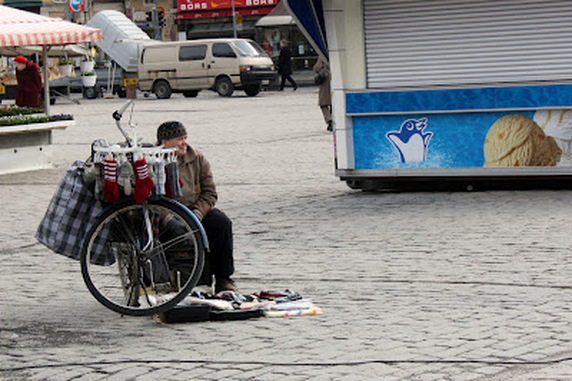|
The Breadcrumbs widget will appear here on the published site.
What is a pop-up store?By Connor Sites-Bowen QuailBellMagazine.com Pop-up retail projects emerged as a trend in the USA around 2003-2004, and have gained steam since then. The idea, at its most basic, is that commerce occurs, at a temporary (but fixed) location, for a temporary amount of time (a day, a week, a month). Civilization has had temporary stores since ancient times, in the form of bazaars, markets, and other short term events. It is how we have done business for a long, long time. In fact, the word retail, to mean "sale in small quantities," and referring to permanently housed specialty stores, was first recorded in 1433, only a few centuries ago. Markets and market days (specific days of the week that a market was open for business) were a key way by which goods could be traded. For most of history, goods for sale were perishable and produced by hand. Market days allowed farmers and craftspeople for a large area to produce goods during most of the week, and then sell them at a central location on a single day. By Rosipaw The rise of the retail model (that is, stores that sold specific kinds of goods, and were open the whole week) only emerged when human settlement allowed for a large enough demand to meet that kind of supply. Fundamentally, one only sees speciality shops in places of great human density: cities. A pop-up store maintains the characteristic of being inherently specialized. Many of them only represent a single brand, such as the Comme des Garcons: Black store in New York City, which only markets a particular lower-cost line of Comme des Garconsclothing. Where pop-ups differ from specialty stores is in their temporary nature. Because they are only around for a month or less, they tend to have low overhead as compared to a long term store. The space might be rent-free, the staff may volunteer, and because they are a new and novel thing, and a limited, exclusive event, the amount of attention and activity they attract is usually vastly higher than a long-term retail counterpart. Pop-up stores have taken off since 2008, when the recession set in. Many building owners, neighborhood groups, and cities (Pittsburgh included) see them as a way to fill, in the very short term, vacant spaces that other businesses have abandoned (due to collapse or downsizing). They are a way to keep a business district well-trafficked despite a lack of permanent tenants. As such, many of them pay no-or-low rent during their time in the space. Connor Sites-Bowen is the founder of Clowder & Pack in Pittsburgh, Pennsylvania. CommentsComments are closed.
|
|








